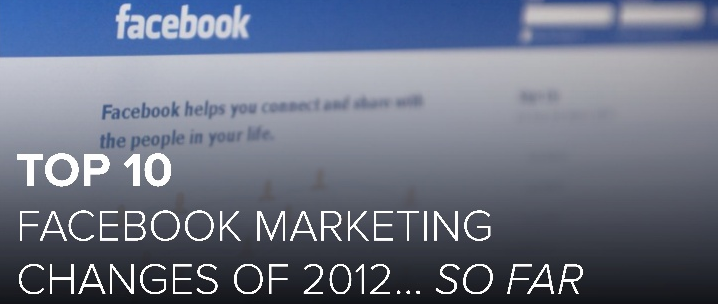1. Facebook Rolls Out Timeline to All Users and Fan Pages
Facebook announced its new Timeline profile layout in 2011, but the changes were not seen by all users until late March. The visual-heavy design was met by skepticism at first, and many have found it has changed the way people interact with the site. Since the launch of Timeline, brands get 46 percent more engagement per post on average.
2. The (Rumored) Want Button
While the feature has yet to rollout, the rumored launch of a Facebook Want button presents an interesting concept for marketers, especially those in ecommerce. Pairing new product releases with the Want feature will likely help companies increase interest related to the products and services they’re selling.
3. Scheduled Posts
Scheduled Posts give marketers an unprecedented level of control over their presence on Facebook. With the addition, companies can plan new product releases or announcements and ensure Facebook content will be shared at specific times.
4. Unpublished Posts
Marketers that cater to multiple target audiences can now share content with specific segments of their fans. Many consumers have said they’re often frustrated by excessive and irrelevant social content shared by the brands they follow. Unpublished Posts help marketers share items with the portion of their fanbases most interested in a piece of content. When the option is selected, the post doesn’t appear on the brand’s Timeline, which means fans landing on the page will see only content relevant to all users.
5. Facebook Adds Permission Levels for Page Admins
In late May, Facebook launched permission levels for Facebook Page administrators to allow marketers to allow people to manage the campaigns more effectively. The new permission levels include five distinctions, ranging from manager and content creator to Insights analysts. Each role comes with varying capability to ensure successful management of Facebook marketing efforts.
6. Facebook Emphasizes Sponsored Content in News Feeds
Late last year, Facebook rolled out Sponsored Stories to allow marketers to pay to insert content into their fans’ news feeds. However, the company made some changes to the feature this year that make it more explicit that the content is sponsored, not entirely organic. Brafton highlighted a report from Marin Software that found the use of Sponsored Stories has helped marketers improve engagement with their paid content.
7. Facebook Adds Trending Content to Users’ News Feeds
Highly relevant, trending news articles now appear in users’ news feeds based on their friends’ activity around the content. Marketers using news content marketing and sharing their latest headlines on Facebook received an organic way to drive traffic to their Pages. While creating high-quality, informative content can help improve website traffic, the trending articles are also a strong way to improve social fodder as a whole.
8. Facebook Acquires Instagram
In April, Facebook acquired photo-sharing app Instagram for $1 billion. The price shocked many at first, and we still haven’t seen much in the way of integration between the two social tools. However, image sharing has been an issue for many of Facebook’s mobile users, and the potential improvements resulting from the move could be huge. Social engagement has seen marked increases when companies include visual content as part of their strategies, and Facebook’s acquisition of Instagram could make it easier for businesses to include images on their Facebook pages.
9. Further Integration of Facebook Data on Bing SERPs
Bing’s addition of the social sidebar that included data from most major social networks provided a novel approach to the way social and search can complement each other. Beyond using Facebook data to influence search rankings for logged-in users, Bing has added relevant social posts and users on its SERPs. Users also have the option to share search results pages with their Facebook friends through Bing’s sidebar..
10. Facebook Voice for Marketers
This update helps those who manage Facebook marketing accounts, allowing them to comment on their brands’ social content from their personal accounts. Giving marketers more control and options to boost their social presence will help Facebook become a more attractive option.




